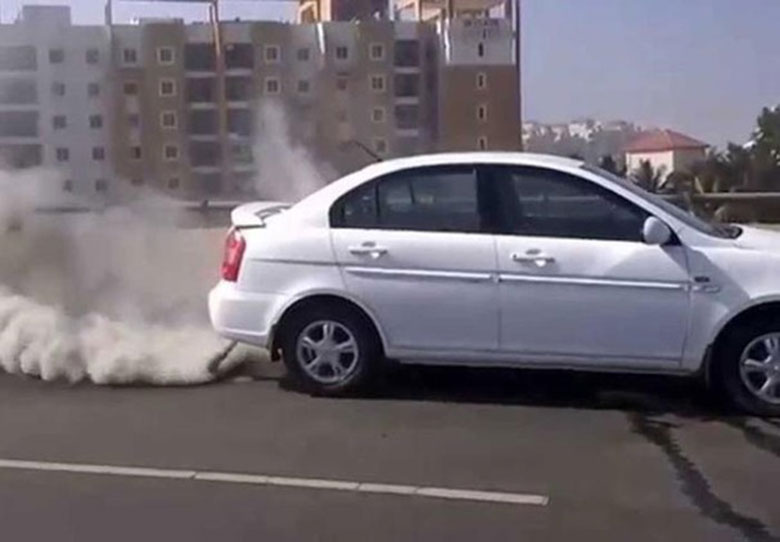Repair instructions
Is it Bad to Leave Your Car Running?
Summary:
- Leaving your car idling wastes fuel and contributes to emissions.
- Modern vehicles with fuel injection systems aren’t harmed by idling, but it’s not necessary.
- Idling doesn’t help modern vehicles warm up—driving does the job faster.
- Engine idling produces harmful emissions, affecting both health and the environment.
- Many states have enacted laws limiting idling, so be aware of local regulations.
- Instead of idling, turn off your engine or drive a short distance to warm up your car efficiently.
What Happens if You Leave Your Car Idling?
We all know the temptation to leave the car running while we wait, but here’s why it’s a bad habit. Idling your engine wastes fuel and contributes to unnecessary emissions. For example, two minutes of idling can use enough fuel for one mile of driving. On average, an idling car consumes between 1/5 to 7/10 of a gallon of gas every hour. Diesel vehicles waste even more—around a gallon per hour. Considering the high cost of fuel these days, that’s money down the drain.
You might think that leaving your car running uses less gas than restarting it, but that’s a myth. Older carbureted vehicles may have had that issue, but modern fuel-injected engines use less fuel to restart than they do idling. So, every minute you leave your car running, you’re just wasting fuel.

Can Idling Damage Your Car?
For newer vehicles with fuel injection, idling isn’t likely to cause engine damage. Modern engines are designed to handle a range of conditions, and the onboard computer regulates fuel delivery efficiently. However, extended idling still isn’t ideal—it wastes fuel and increases tailpipe emissions. It’s a waste of resources and isn’t good for your engine in the long run.
Do You Need Idling to Warm Up Your Car?
Some drivers still think they need to let their car idle for several minutes in the winter to warm up. That’s not necessary with modern fuel-injected engines. These systems automatically adjust to ambient temperature changes and get up to operating efficiency quickly. The best way to warm up your vehicle is simply to drive it—this will get your engine and the cabin warm without wasting fuel or adding unnecessary emissions.
What Can Idling Do to Your Health and The Environment?
Vehicle emissions are a major source of pollution, contributing to harmful gases like carbon monoxide and nitrogen oxides. These pollutants harm air quality and contribute to global warming. In fact, emissions from idling vehicles are just as damaging as those from moving vehicles. In just 10 minutes of idling, your car can emit a pound of carbon dioxide. The U.S. wastes about 3.8 million gallons of gas every day from idling cars.
Furthermore, carbon monoxide can accumulate to dangerous levels in enclosed spaces like garages, putting you at risk. If you must idle your vehicle, make sure you’re in a well-ventilated area.
Is Idling Illegal?
Many states have enacted laws to limit vehicle idling. For example, Washington D.C. prohibits idling for more than 3 minutes, with fines up to $500 for first-time offenders. In California, school buses must turn off their engines when stopped, and idling for more than 30 seconds is banned. Check your local laws to avoid fines and contribute to cleaner air.
States with anti-idling laws include: Arizona, California, Connecticut, Delaware, District of Columbia, Hawaii, Illinois, Maine, Maryland, Massachusetts, Minnesota, Nevada, New Jersey, New York, Ohio, and others.
What Should You Do Instead of Idling?
While idling can be unavoidable at times (like during heavy traffic), there are plenty of ways to reduce unnecessary idling.
Restart Your Engine
If you’re waiting for an extended period—like at a drive-thru or at a long stoplight—turning off your engine is more fuel-efficient than letting it idle. Modern engines don’t consume excessive fuel when restarted, so you won’t be wasting gas.
Drive to Warm Up Your Engine and Cabin
Instead of letting your car idle, just drive it. A short drive will warm up your engine and cabin faster and more efficiently than sitting idle. Just avoid revving the engine unnecessarily—this doesn’t help warm it up faster and can actually waste more fuel.
In short, idling is a bad habit that you can easily avoid. Save fuel, reduce emissions, and keep your car in better condition by turning off your engine when you’re not driving.
